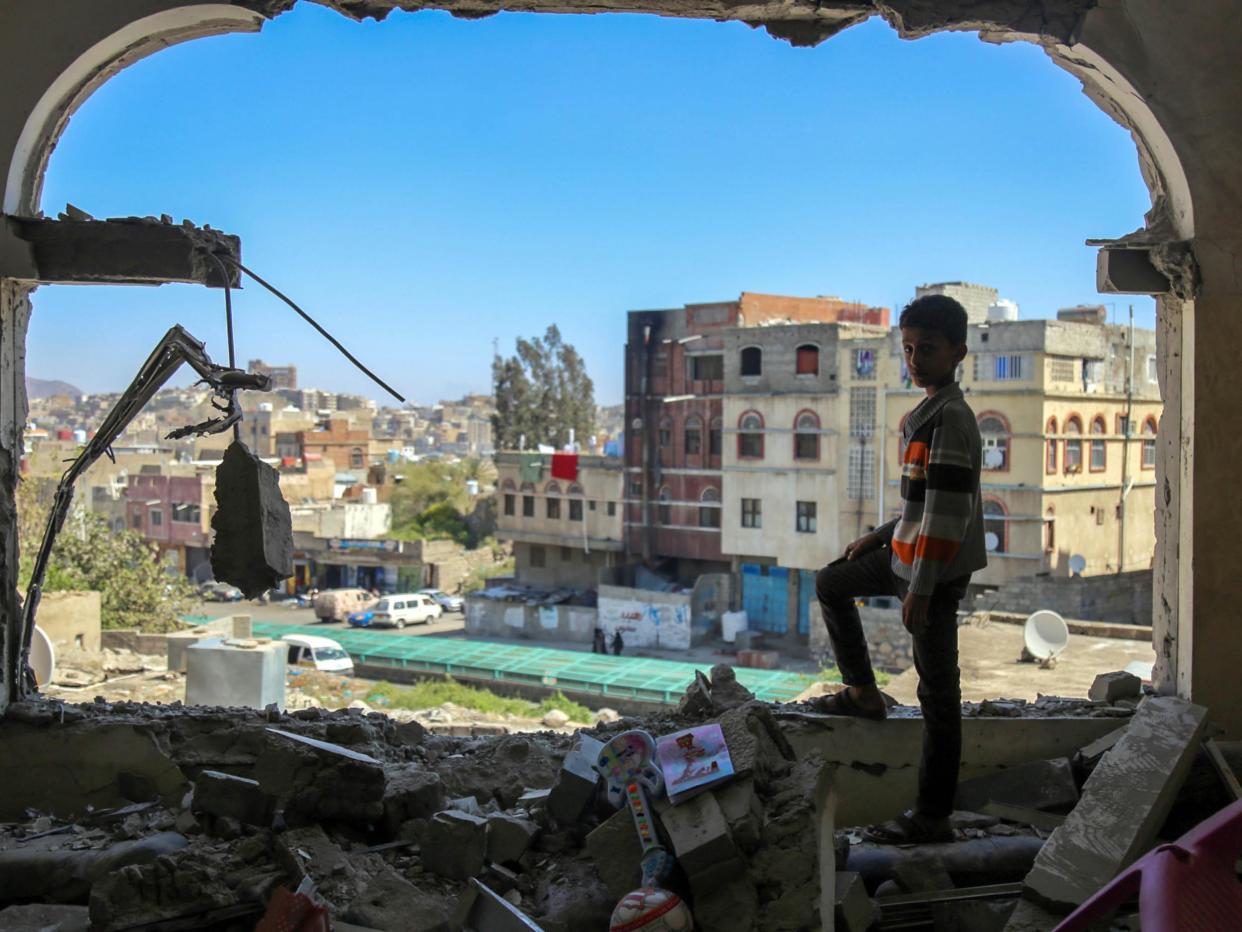The Arab Gulf states plan to 'win' the war in Yemen – we should be wary about what their victory would look like

After two years of fierce fighting, Yemen’s civil war, which pits northern Shia rebels and forces loyal to the country’s former President against a series of rival militias and military units backed by Saudi Arabia and the United Arab Emirates, has reached a political and military stalemate that has achieved little more than pushing millions of Yemenis to the brink of starvation. Now, the Arab Gulf states have a new plan to “win” the war. But we should be wary about what “winning” might look like.
Saudi Arabia launched its military campaign in Yemen in March of 2015 in the hope of dislodging the Houthi rebels from Sana’a, the country’s capital, which they seized in a September 2014 coup. The Saudis wanted to send a message to Iran, which they believe controls the Houthis, and restore the ousted Yemeni President and an ally of Riyadh, Abd Rabbu Mansour Hadi, to the capital and to power. Two years on, the Houthis still control the capital and much of the country’s northwestern highlands, backed by military units loyal to Yemen’s former President Ali Abdullah Saleh.
Hadi, a weak and unpopular figure before the war, struggled to bring the many fighting forces who took on the Houthis on the ground under his control. He has also done little to restore basic governance in liberated areas, with residents of Aden – a southern port city from which the northern rebels were repelled in mid-2015 – suffering from a lack of security, water and electricity. The Houthi-Saleh alliance has proven surprisingly resilient in the face of an often intense campaign of aerial bombardment and a de facto naval siege, meanwhile.
In this vacuum, hardline Salafist militias and the likeminded local al-Qaeda franchise – once seen by London and Westminster as one of most dangerous in the world – have gained increasing sway on the ground. So too have secessionists and tribal militias. These different forces – some backed directly by Saudi Arabia and the UAE, who quickly tired of Hadi’s lack of leadership and looked for more effective partners on the ground – do not always see eye to eye. In recent weeks, fighting has taken place between pro-independence militias in the southern city of Aden and military units paid for by President Hadi.
The war has also tipped the country, already the poorest of the Arab states, into one of the world’s worst humanitarian crises, with the UN predicting a famine and some aid agencies saying that parts of Yemen are already starving to death. The war has put the UK and US, who have lent, to differing degrees, political and military support to the Saudi-led campaign, in a difficult position, with rights groups accusing them of helping facilitate breaches of international law by the Saudi air force and of not doing enough to alleviate the humanitarian crisis.
The UN has struggled to find a deal that would end the fighting on the ground, not least because doing so means balancing the interests of the Houthis, Saleh and his loyalists, the technically legitimate Hadi government, the Saudis and Emiratis, against one another. Some foreign officials worry that even if a deal can be reached and it does not include many of the armed groups involved in the war including the southern separatists, it could spark another round of war not much further down the road.
It is clear that something needs to change. The problem is that the only big idea to emerge in recent months has been a military operation to seize Houthi-held Hodeidah, a port city on Yemen’s west coast. Taking the port, the Emiratis and Saudis reckon, would help stem the flow of arms from Iran that they believe is helping sustain the Houthis, and would give them more leverage in negotiations. Hodeidah is the main entry point for basic goods including food and fuel into Yemen, and taking it would leave the Houthi-Saleh alliance sealed off from the outside world.
But it is by no means certain that taking Hodeidah will be easy. The Houthi-Saleh alliance is well aware of the plan, and they are said to be spoiling for a fight. While the Saudi-led coalition claims that taking the port would help alleviate the humanitarian crisis in the medium term, aid agencies fret that the short-term effect of cutting off access to a major port could be a killing blow to some of Yemen’s starving millions.
Nor is it clear that were the port to be taken, the Houthi-Saleh alliance would simply wilt away. Rather, it seems more likely that they and the population in areas under their control, facing further deprivation, will take a more hardline – and more radical – stance, perhaps supported by Iran, which to date has only had to invest a relatively small amount of resources to prop the Houthis up. This in turn will only serve to help Salafist leaders and, yes, al-Qaeda, sell a worrying, sectarian and anti-Western worldview. In the absence of a government able to impose itself on the ground or provide security and basic services like electricity and water, the discipline of radical groups becomes all too appealing.
Two years in, something must be done to shake up the Yemen war. But the last thing the world needs is another Middle Eastern country torn to pieces and racked by sectarian violence, and in which radical Islamist groups vie for control.
Peter Salisbury is a Senior Research Fellow for the Arabian Peninsula at Chatham House’s Middle East and North Africa Programme. A veteran journalist and analyst, he has worked on Yemen since 2008

 Yahoo News
Yahoo News 
